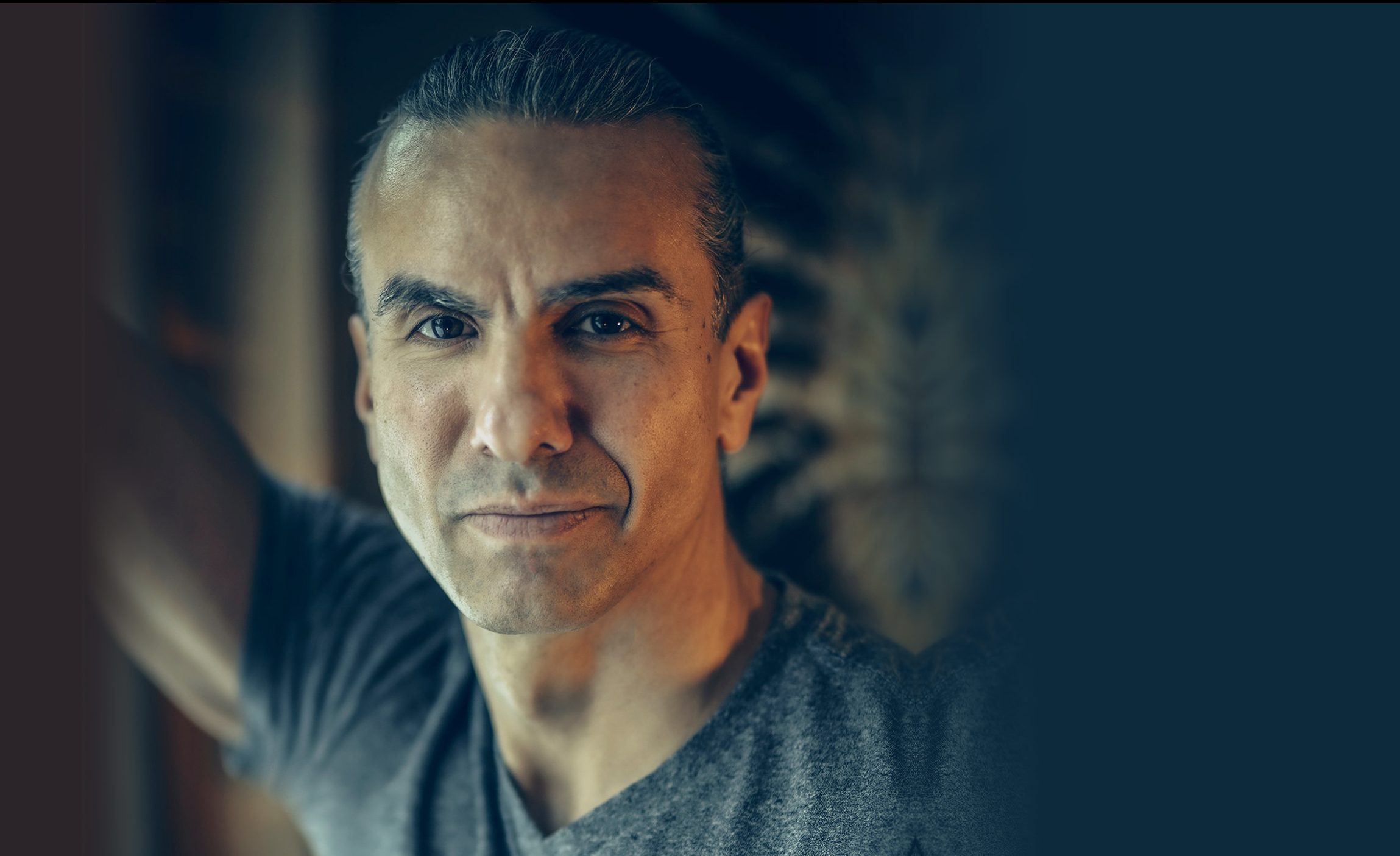
Dr. Anton Treuer, professor of Ojibwe at Bemidji State University, will continue to develop his Ojibwe language and culture preservation mentorship program with support from the Henry Luce Foundation and the First Nations Development Institute.
The Luce Fellowship supported Treuer’s recent sabbatical and continues to support his mentorship of apprentices on Ojibwe language and culture preservation projects, including Bemidji State University’s Oshkaabewis Native Journal.
Revitalizing and preserving the Ojibwe language and culture has been Treuer’s primary passion during his 25 years at Bemidji State. Although he had early ambitions to become a lawyer, he felt a deep calling back to his cultural roots.
“I told my parents that I’m not taking a job and I’m not going to graduate school,” Treuer said in 1991. “I want to come home and walk the Earth and hang out with my elders.”
Treuer has now dedicated his life to immersion in Ojibwe culture for himself and others.
Treuer has written or edited over 20 books, sits on several organizational boards, earned his master’s and doctoral degrees, teaches at Bemidji State and is the father of nine children.
A nationally renowned scholar, Treuer’s work also has positioned him to carry rare knowledge of Ojibwe traditions in areas such as music and medicines in addition to language preservation.
“It has been the great honor of my life to be a servant to my fellow Indigenous people,” Treuer said. “I want to equip my community with cultural knowledge to keep our rich Ojibwe traditions going.”
Treuer’s mentees, who can come from any age group, are personally mentored in Ojibwe language and culture and become involved in practices such as drum ceremonies, medicine dances and tobacco offerings to help maintain the broader culture.
Treuer says he’s most proud of knowing that his work will help Ojibwe culture endure, even after his time on Earth comes to an end.
“Seven generations from now, when nobody knows my name, no matter how many books I write or what I do, I think there is a real chance that our language and ceremonies will be alive in the hearts and minds of our future generations,” Treuer said. “That will be the greatest accomplishment and legacy.”
As more people partake in languages, traditions and practices, Ojibwe culture will persevere. These collaborations make Treuer hopeful for the future.
“Languages and cultures live when they live in the hearts and minds of young people”, he says.
About Dr. Anton Treuer
A professor of Ojibwe at Bemidji State University, Dr. Anton Treuer has become an internationally renowned expert on the preservation of Ojibwe language and culture. He has written or edited more than 20 books, including “Everything You Wanted to Know About Indians but Were Afraid to Ask,” “The Assassination of Hole in the Day,” “Where Wolves Don’t Die,” “The Language Warrior’s Manifesto,” and “Warrior Nation: The History of the Red Lake Ojibwe.” He also presents frequently on issues related to racial equity and cultural competency, tribal sovereignty and history and strategies for addressing achievement gaps. He earned his bachelor’s degree from Princeton University and master’s and doctorate degrees from the University of Minnesota.
About the Henry Luce Foundation
The Henry Luce Foundation, named for the founder of Time magazine, has been investing in work that informs public discussions for more than 80 years. The foundation supports projects at universities, policy institutes, media organizations, museums and many other organizations that work to put knowledge into the hands of the people and communities who need it. Since 1936, the foundation has distributed more than $1 billion in more than 5,800 grants to support these initiatives.
About the First Nations Development Institute
The First Nations Development Institute works to improve the economic conditions of American Indian people and communities through technical assistance, training, advocacy, policy development and direct financial assistance. Its projects help Native people achieve financial empowerment, invest in Native youth, strengthen tribal and community initiatives, nourish Native foods and health and steward Native lands. Since 1980, the institute has supported nearly 3,400 projects with nearly $80 million in funding.
|
Story written by Charley Gilbert, Office of Communications & Marketing content team |
